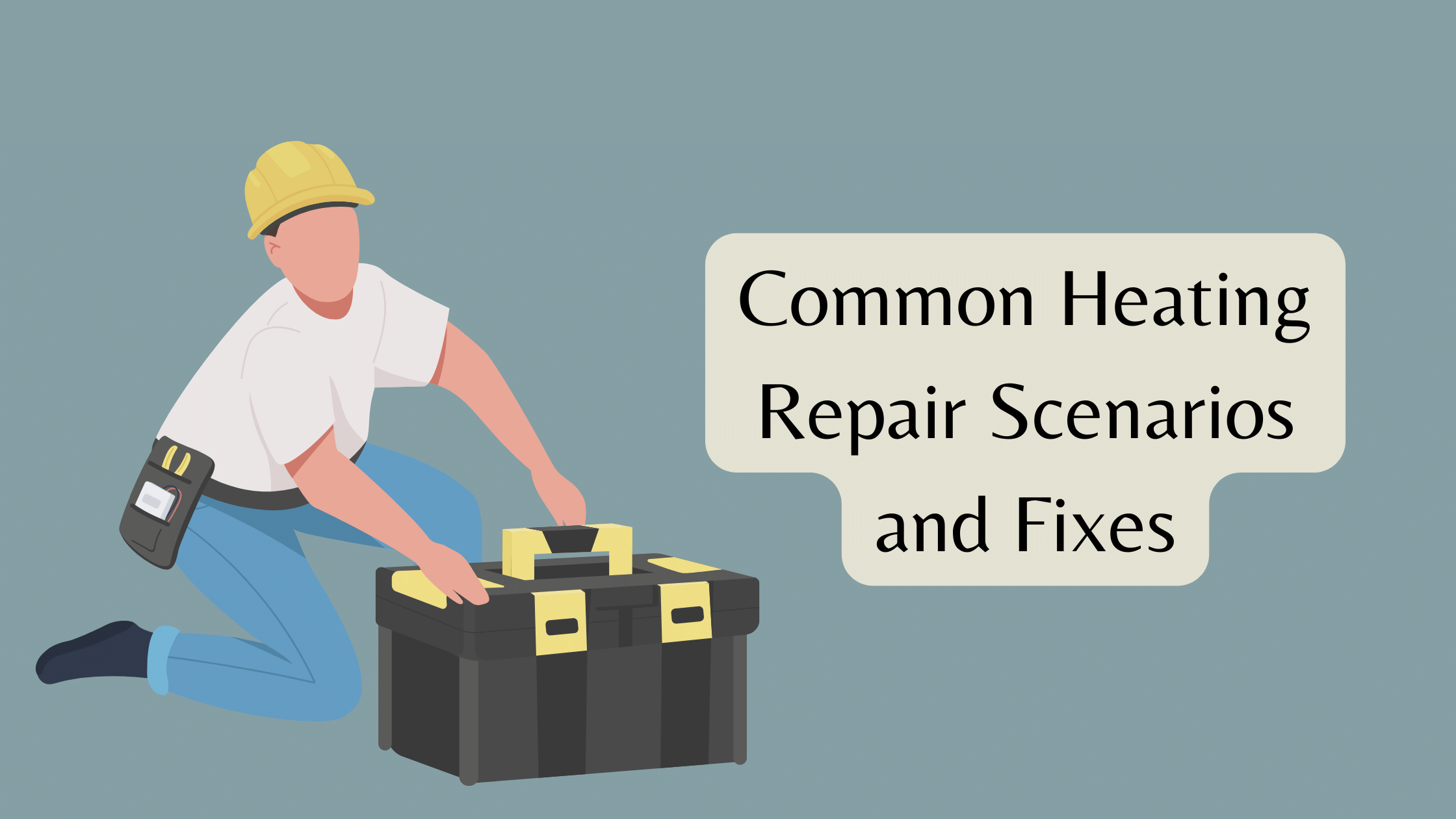
Recognizing the common scenarios that may arise and understanding their potential fixes can save time, money, and discomfort. Whether it’s a minor inconvenience or a major problem, being aware of these scenarios can help alleviate some of the stress and hassle of heating repairs.
If you feel uncomfortable tackling the heating repairs yourself, contacting a reliable service that offers furnace repair solutions in Fort Collins, CO, can save the day. Here are some of the most common scenarios and their potential fixes:
1. No heat or insufficient heat
Several factors could be at play when your heating system stops producing heat or provides insufficient heat. Firstly, check if the thermostat is set correctly and functioning properly, as a simple adjustment might be the solution.
Additionally, inspect the furnace filter; a clogged filter can restrict airflow, diminishing the system’s efficiency and capacity to heat the space adequately. Examining the furnace’s pilot light or ignition system is also advisable, as issues can prevent the furnace from generating heat. Ensure circuit breakers haven’t tripped for electric heaters, affecting the system’s power supply.
If these preliminary checks don’t resolve the issue, it may involve more complex concerns, such as a malfunctioning blower motor or issues with the furnace’s heat exchanger.
In such cases, finding professional assistance from a qualified technician is recommended to determine and repair the problem correctly, ensuring your heating system operates safely and efficiently.
2. Strange noises
Hearing strange noises from your heating system can be unsettling and may indicate various issues. Familiar sounds include banging, whistling, or grinding noises, each suggesting potential problems. For instance, a banging noise often points to a delayed ignition in gas furnaces, which can be dangerous and should be addressed promptly.
Whistling noises may signify airflow restrictions, possibly due to a dirty filter or blocked vents that need cleaning or clearing. Meanwhile, grinding sounds might indicate a problem with the blower motor, such as worn bearings that require lubrication or replacement.
To address these noises, start by identifying their type and location. For noises that suggest airflow issues, inspect and replace your furnace filter if it’s dirty, and ensure all vents are open and unobstructed.
If you suspect a problem with the furnace’s ignition or blower motor, turn off the system to prevent damage. Contact a professional for inspection and repairs. For safety, always have a qualified technician handle components like the blower motor or gas ignition systems.
3. High energy bills
Experiencing unusually high energy bills can indicate that your heating system may need repair or maintenance. Several issues could cause your heating system to operate inefficiently, increasing energy consumption.
For instance, a furnace struggling with a clogged air filter, worn-out components, or a faulty thermostat can require more energy to maintain the desired temperature. Additionally, leaks or poor insulation in the house can allow heat to escape, forcing the system to work harder to compensate.
If you notice an unexpected spike in your energy costs without a corresponding increase in usage, it’s advisable to have a professional inspect your system for any underlying issues that might be compromising its efficiency.
4. Constant cycling
When your heating system refuses to turn on or constantly cycles between on and off states, it signals a potential problem that needs immediate attention.
Such behavior can indicate issues ranging from electrical problems, like faulty wiring or a malfunctioning thermostat, to mechanical issues within the furnace itself, such as an overworked blower motor or a clogged filter causing the system to overheat and shut off as a safety precaution.
Constant cycling reduces the efficiency of your heating system, which leads to higher utility bills, but it also puts excessive stress on the system’s components, potentially resulting in premature failure.
If your system won’t turn on or is cycling too frequently, it’s crucial to consult a professional technician to determine and repair the problem to ensure your heating system works smoothly and efficiently.